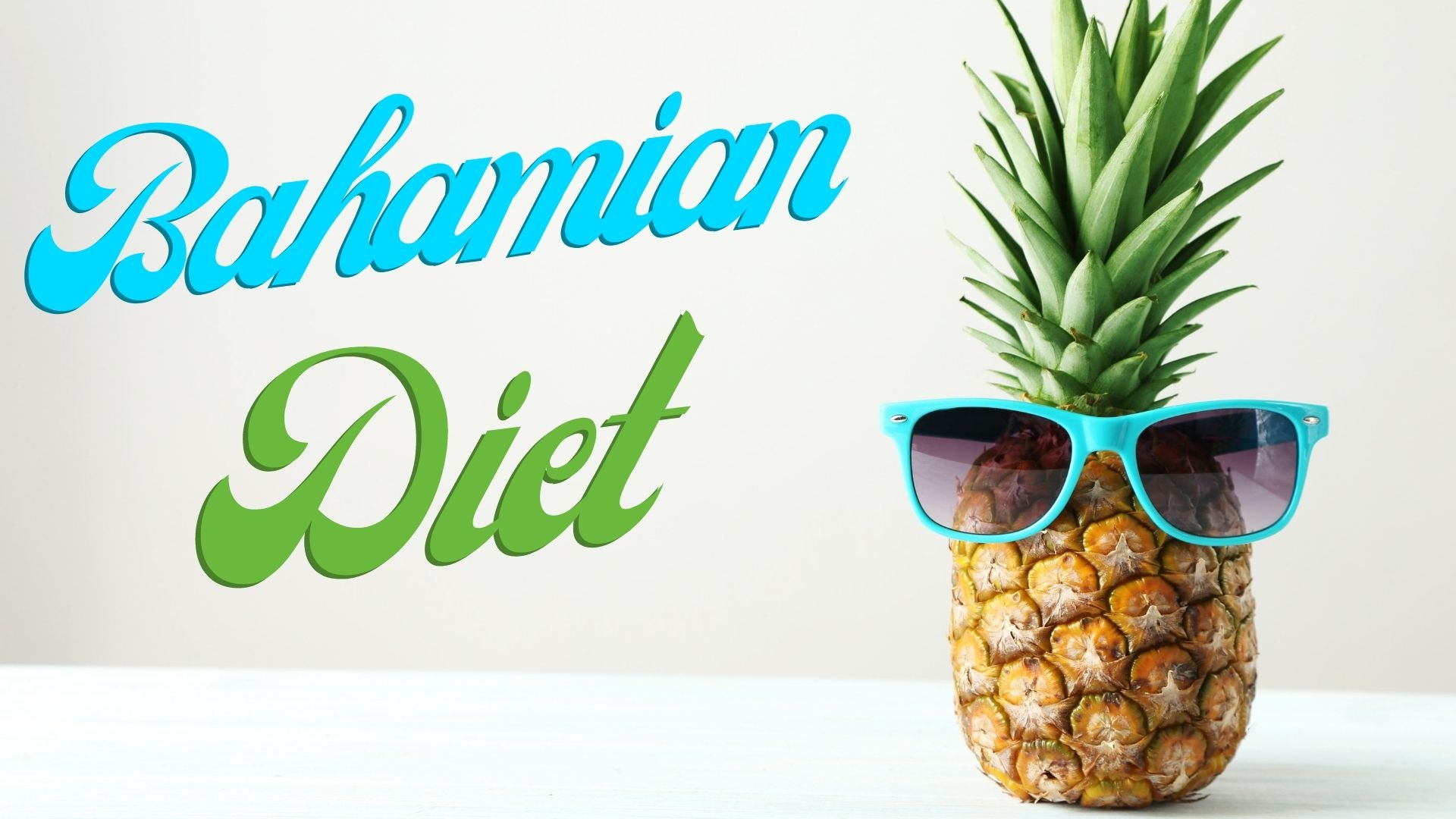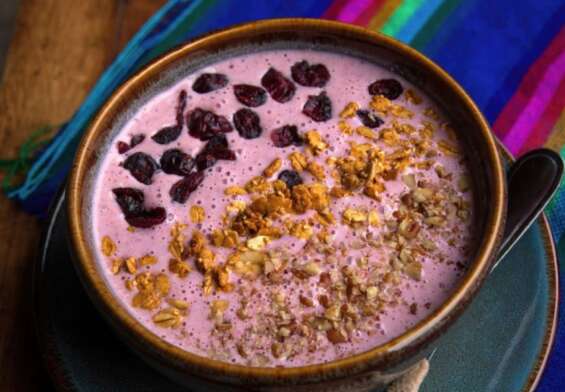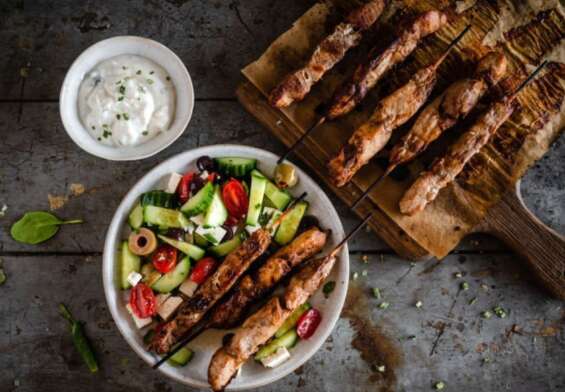
French Diet: How to Eat Like the French and Stay Slim
The French Diet is a popular way of eating that focuses on enjoying food while still maintaining a healthy balanced diet. The French Diet is based on traditional French cuisine but with a modern twist. It involves eating locally sourced, fresh ingredients, eating in moderation, and savoring each bite. The French Diet is not a “diet” in the conventional sense as it does not involve counting calories, or following a strict meal plan. Instead, it encourages mindful eating and enjoying food for its flavor, texture, and health benefits. It also focuses on the quality of food rather than the quantity and encourages the consumption of healthy fats, proteins, and carbohydrates.
Exploring the Origin and History of the French Diet
Have you ever wondered why the French are so slim and trim? Well, it turns out there’s more to it than just the occasional glass of wine. The French diet has been a source of envy for many, but it’s also steeped in tradition and culture. Let’s take a look at the history and origin of the French diet – but try not to get too jealous!
It all started in the Middle Ages when the French began to adopt a more sophisticated approach to cuisine. Even at this early stage, the French diet was based on fresh, seasonal produce, with a focus on quality over quantity. They would savor each meal, taking the time to enjoy the food and appreciate the flavor.
The French diet really gained momentum in the 18th century, when a movement known as ‘nouvelle cuisine’ emerged. This style of cooking focused on light, healthy dishes made with fresh produce and a minimum of fats and carbohydrates. The French diet also began to incorporate more fish and poultry at this time, as well as an increased focus on vegetables and grains.
In the 19th century, the French diet began to move away from the traditional ‘three-course meal’. Instead, they adopted a more modern approach of eating several smaller meals throughout the day. This allowed them to focus on quality and variety, rather than quantity.
By the mid-20th century, the French diet had become even more refined. People began to focus on organic produce and traditional recipes, and the emphasis was on freshness, flavor, and nutrition. The French diet continues to evolve today, with a focus on healthy, balanced meals and plenty of exercises.
So there you have it – the fascinating history and origin of the French diet. While it may not be easy to replicate this diet, it’s certainly worth admiring. Bon appétit!
Understanding the French Diet vs. Other Diets
Ah, the French diet. It’s been the envy of the world ever since the 1950s when French women seemed to effortlessly stay slim while enjoying indulgences like croissants, cheese, and wine. But what is it about the French diet that sets it apart from other diets?
For starters, the French diet is all about moderation. Instead of depriving yourself, you can enjoy things like a piece of cake or a glass of wine. The key is to savor the moment and then move on. It’s not about bingeing and gorging, but rather enjoying the finer things in life in moderation.
Another thing that makes the French diet stand out is that it focuses on fresh, seasonal ingredients. Instead of processed foods, the French diet typically consists of fruits, vegetables, lean meats, and dairy products. This makes it not only more nutritious but more delicious as well.
Finally, the French diet advocates eating slowly. This gives your body time to register that you’re full, helping to prevent overeating. Plus, taking the time to savor your food is an important part of the French diet.
So there you have it – the French diet is all about moderation, fresh ingredients, and savoring your food. Now, if you’ll excuse me, I’m off to enjoy a glass of wine and a croissant with all the grace and panache of a Parisian!
Making Healthy French Diet Recipes at Home
If you’ve ever dreamed of dining like the French, now you can! Making healthy French diet recipes at home can be both delicious and nutritious. Here are some of our favorite tips for whipping up French-inspired dishes with a healthy twist.
First of all, get ready to say goodbye to processed foods and sugary treats. The French diet is all about fresh ingredients and quality over quantity. So stock up on fresh vegetables, fruits, and lean proteins.
Next, get comfortable with cooking with butter. The French diet isn’t about depriving yourself, so don’t be afraid to use a little bit of butter in your recipes. Just make sure you’re using the real stuff, not margarine.
Now it’s time to get creative in the kitchen. Go beyond the traditional French dishes like ratatouille and coq au vin. Try a lighter version of Moules Frites (mussels and fries) by using a light broth instead of butter. Or whip up a healthy version of bouillabaisse by using vegetable broth and fresh fish.
Finally, don’t forget to enjoy your food. The French heavily emphasize that food is meant to be savored and enjoyed. So take time to appreciate the flavors, textures, and aromas of your food. Bon appétit!
The Role of Wine in the French Diet
The French diet is often thought of as a bastion of health and gastronomical delight, and nowhere is this more evident than when it comes to their famed love affair with wine. Wine has played an integral part in French culture since the Roman Empire, and its influence on the national diet has been well documented.
But how exactly does wine fit into the French diet? Is it just a social lubricant or does it actually have a nutritional benefit? Well, the answer might surprise you.
It turns out that wine does indeed provide certain health benefits, such as reducing the risk of cardiovascular disease and even helping to control blood sugar levels. Studies have also suggested that moderate wine consumption can help reduce the risk of certain cancers, such as colorectal and breast cancer.
But the benefits don’t stop there. Drinking wine can also help to improve digestion and even enhance the flavor of food. This is because the tannins in the wine act as an appetite stimulant, encouraging the body to produce more saliva and aiding the digestion of food.
Of course, the French don’t just down glasses of wine for their health benefits. They also enjoy its flavor and complexity, and the ritual of savoring it with a meal. It’s a way for them to savor their food, and share it with friends and family.
So, when it comes to the French diet, wine is more than just a social lubricant. It’s a way of life! So, the next time you’re enjoying a meal with friends and family, why not open a bottle of your favorite French wine and enjoy it with your meal? You’ll be glad you did!
Tips for Eating Out on the French Diet
- Start with a French classic: If you’re looking for a delicious and traditional French meal, start with a classic. Escargot, steak tartare, or salade Nicoise are all popular French dishes that are sure to please.
- Get creative with your sides: Sure, french fries are an option, but why not get a bit more creative? Try some roasted vegetables, a light salad, or a simple side of steamed greens.
- Choose a light dessert: No French meal is complete without a sweet treat. Opt for something light like a fruit tart, a crème brûlée, or a light sorbet.
- Don’t be afraid to say no: If a dish comes with a heavy cream sauce or is fried, you can always ask for it to be prepared differently. Your server will be more than happy to accommodate you.
- Share your meal: French cuisine is meant to be shared. Split a dish with a friend or order two appetizers instead of an entree. This way you can try a variety of dishes without overindulging.
- Enjoy the experience: Eating out is just as much about the experience as it is about the food. So don’t forget to savor the moment and enjoy your meal. Bon appétit!
The Benefits of Eating the French Diet
The French diet is one of the healthiest diets out there – and for good reason. Not only is it packed full of wholesome, nutrient-rich foods, but it also has some pretty amazing benefits. Here are just a few of the reasons why you should consider adopting the French diet:
You get to eat delicious food. Let’s be honest, French food is amazing. From the baguettes to the croissants, the cheese to the pastries – there’s something for everyone. And you don’t have to miss out on any of it if you follow the French diet.
You get to drink delicious wine. Who doesn’t love a good glass of wine? The French diet allows you to enjoy a glass of wine with dinner, while still staying within the dietary guidelines.
You get to eat more slowly. The French diet encourages you to take your time when eating, savoring the flavors and aromas of the food. This can help you to stay fuller for longer, reducing the amount of food you eat overall.
You get to enjoy the art of conversation. The French love to sit around the table and talk. Eating meals together is an important part of their culture, and it can be a great way to spend quality time with friends and family.
So, if you’re looking for a healthier way to eat that also allows you to enjoy some of the finer things in life, then the French diet is definitely worth considering. Bon appétit!
Eating for Pleasure: the French Diet Mindset
Eating for pleasure is a way of life in France, where meals are seen as an important part of the day and a time for friends and family to come together. But don’t be fooled – the French diet mindset is not about overindulgence. Rather, it’s about enjoying the flavors of fresh, local ingredients and savoring every bite. Here’s a look at what it means to eat for pleasure, the French way:
The French don’t believe in depriving themselves of pleasure. They take the time to enjoy their meals and savor each bite. This means no rushing through meals; it takes time to appreciate the flavors and texture of food.
The French diet is all about balance. It’s not about avoiding certain foods, but rather about eating a variety of fresh, local ingredients in moderation. This means that while a French person might enjoy a buttery croissant or a creamy cheese, they’re likely to balance it out with a salad or some fresh fruit.
The French also believe in practicing portion control. They’ll fill their plates with smaller portions of multiple dishes, rather than overloading on one or two. This allows them to enjoy a variety of flavors and also helps them to avoid overindulging.
Eating for pleasure is a way of life in France, where meals are seen as an important part of the day and a time for friends and family to come together. So next time you’re planning a meal, why not take a page from the French diet playbook and embrace the pleasure of the table? Bon appétit!
How to Incorporate the French Diet into Your Lifestyle
If you’ve ever dreamed of having a body like Brigitte Bardot’s or a wardrobe like Coco Chanel, then you’re in luck! Incorporating the French diet into your lifestyle is a great way to look and feel like a true Parisian. Here are some tips on how to get started:
- Make cheese your best friend. From Camembert to Brie, French cuisine has plenty of cheese options to choose from. Try adding a small slice of cheese to your meals or snacking on it as a light snack between meals. Bon appétit!
- Enjoy a leisurely breakfast. Breakfast is often the most overlooked meal of the day in the U.S., but in France, it’s a ritual. Instead of grabbing a quick bowl of cereal, take some time in the morning to enjoy a leisurely breakfast. Try some freshly baked croissants, yogurt with fresh fruit, or an omelet with mushrooms and Gruyère cheese.
- Indulge in dark chocolate. French dark chocolate is known for its rich, intense flavor. Make sure to buy good quality chocolate with a cocoa content of at least 70%. You can enjoy a piece of chocolate as a guilt-free indulgence after meals or use it to make a decadent dessert.
- Eat mindfully. French people are known for their slow, mindful approach to eating. Instead of rushing through your meals, take the time to savor each bite. This helps you to be aware of your body’s fullness signals and avoid overeating.
- Go for quality over quantity. The French diet focuses on quality over quantity. Choose organic, locally-sourced, and seasonal ingredients whenever possible. You don’t need to buy expensive cuts of meat or exotic ingredients; just make sure you’re getting the best quality foods you can.
By following these tips, you can easily incorporate the French diet into your lifestyle and start feeling like a real Parisian! Bonne chance!
Exploring the French Diet’s Impact on Weight Loss
When it comes to weight loss, the French have it all figured out. Or so it seems. From the outside looking in, it appears that the French have some kind of secret formula for staying slim. But is it really due to their diet? Let’s explore the French diet’s impact on weight loss and see if we can uncover the truth.
First, the basics: the French diet is known for being high in fresh produce, lean proteins, and healthy fats. It also includes moderate amounts of dairy, whole grains, and red wine. This balanced approach is thought to help keep blood sugar levels stable and promote a healthy metabolism.
What makes the French diet unique is that it isn’t overly restrictive. In fact, it encourages the occasional indulgence in savory treats like cheese and dark chocolate. The French also tend to sit down and savor their meals, which can help them feel more satisfied and less likely to overeat.
But is the French diet really responsible for weight loss? Well, it depends. While the diet itself may not be a magic bullet for weight loss, it can certainly play a role in helping people achieve their fitness goals. By following the guidelines of a healthy diet, like the French diet, you can help ensure that you’re eating the right amount of calories for your body type and activity level.
And don’t forget the other important weight loss component: exercise. While the French diet is important, it’s just one piece of the puzzle. Regular physical activity is key for maintaining a healthy weight and burning off excess calories.
So, can following the French diet help you lose weight? It certainly can, but only if it’s combined with a healthy lifestyle. Eating a balanced diet and getting regular exercise is essential for seeing lasting results. Bon chance!
French Diet Meal Planning Strategies
If you’re looking to shed a few pounds and live a healthier lifestyle, why not give the French diet a try? This is a diet based on the traditional French way of eating, which includes fresh ingredients, smaller portion sizes, and a variety of flavors. Here are some meal-planning strategies to help you get started on the French diet.
- Start with breakfast. Instead of a bowl of sugary cereal or a greasy fast-food breakfast sandwich, enjoy a bowl of oatmeal topped with fresh berries and a sprinkle of cinnamon. Or have a slice of whole grain toast with a few slices of tomato and avocado.
- Make lunch the lightest meal of the day. Try a salad made with mixed greens, tomatoes, and cucumbers, topped with a simple dressing of olive oil, lemon juice, and herbs. Or have a bowl of vegetable soup with a few slices of whole wheat bread.
- When it comes to dinner, go for something hearty yet light. Try a vegetable-based quiche, or a medley of grilled vegetables served with a piece of fish. If you’re feeling adventurous, try your hand at making a classic French dish like ratatouille.
- Don’t forget about snacks. French snacks are all about fresh, light foods like fruit, nuts, and cheese. Try having a few slices of an apple with a bit of cheese, or some mixed nuts and dried fruit.
- Don’t forget about dessert. Instead of reaching for a slice of cake or a pint of ice cream, try something lighter like a fruit sorbet or a yogurt parfait.
By following these simple meal-planning strategies, you can easily incorporate the French diet into your lifestyle. Bon appetit!
Adapting the French Diet for Vegetarians and Vegans
Are you a vegetarian or vegan living in France? If so, you may be asking yourself, “How am I supposed to adapt to the French diet?” Well, let us tell you: it’s not as hard as you think!
In France, the cuisine is well-known for its heavy reliance on meat and dairy. But with a few simple swaps, you can craft a delicious, vegan-friendly twist on some classic French dishes.
Start with a vegan quiche. Instead of bacon and cheese, opt for roasted vegetables, vegan cheese, and a creamy almond milk filling. This will give you all of the flavors of a traditional quiche, but with none of the animal products.
Next, why not try a vegan ratatouille? You can find vegan versions of the classic ingredients, such as vegan sausages and vegan béchamel sauce, in most grocery stores. This vegan-friendly take on the classic French dish is sure to be a hit!
And don’t forget the desserts! French pastries are often made with heavy cream and butter. But with a few clever substitutions, you can make vegan-friendly versions of all your favorites. For example, use coconut milk or vegan butter in place of dairy ingredients.
So, there you have it – a few easy swaps and you can still enjoy the classic flavors of French cuisine, without any of the animal products. Bon Appetit!
Conclusion
The French Diet is a great way to enjoy food and maintain a healthy lifestyle. It emphasizes balance and moderation and allows you to enjoy the pleasure of eating while still managing your weight. By eating smaller portions, eating healthier foods, and adding more physical activity to your life, you can achieve a healthier lifestyle and reach your weight loss goals. The French Diet is an effective way to improve your health and overall well-being.











